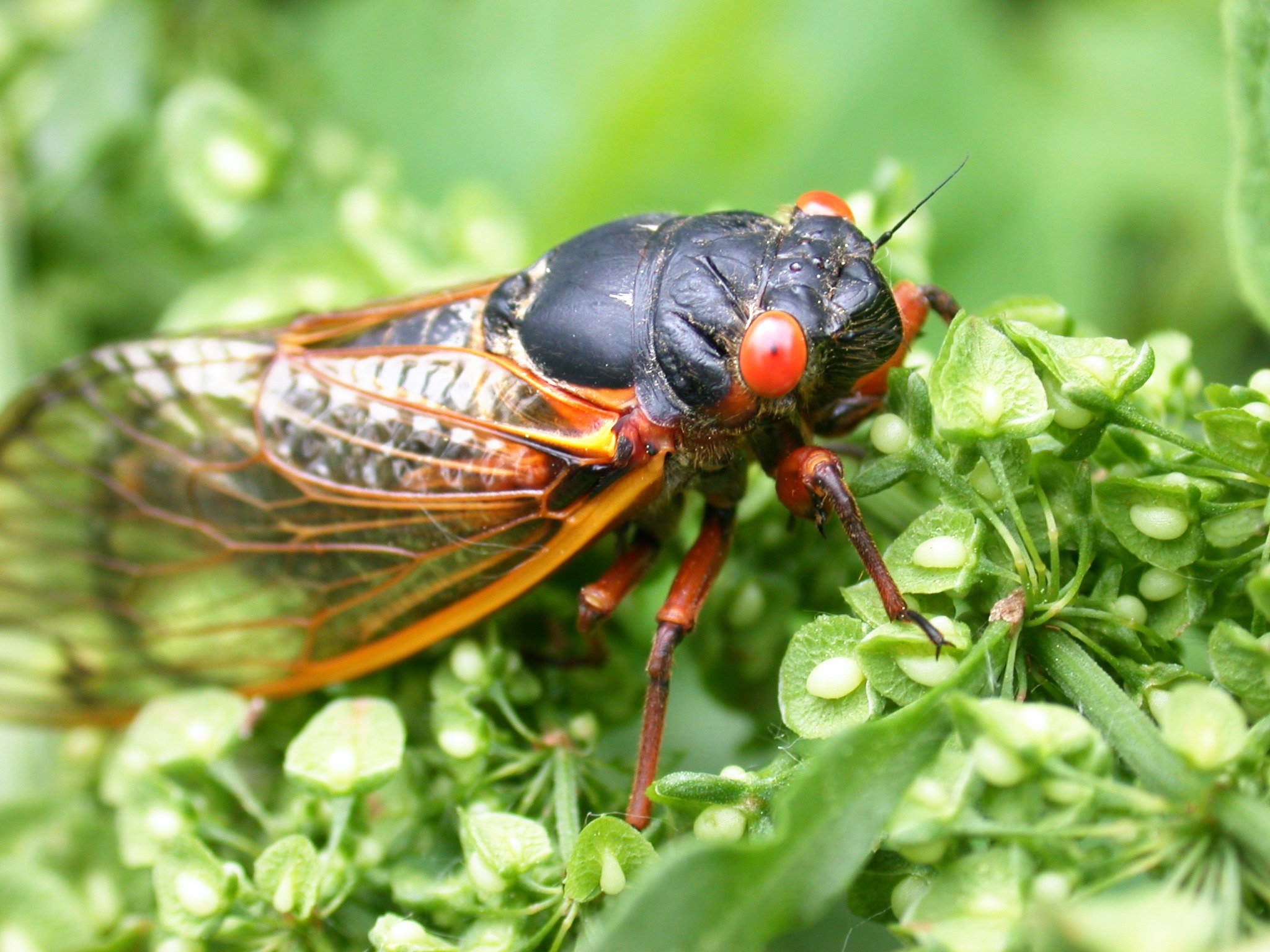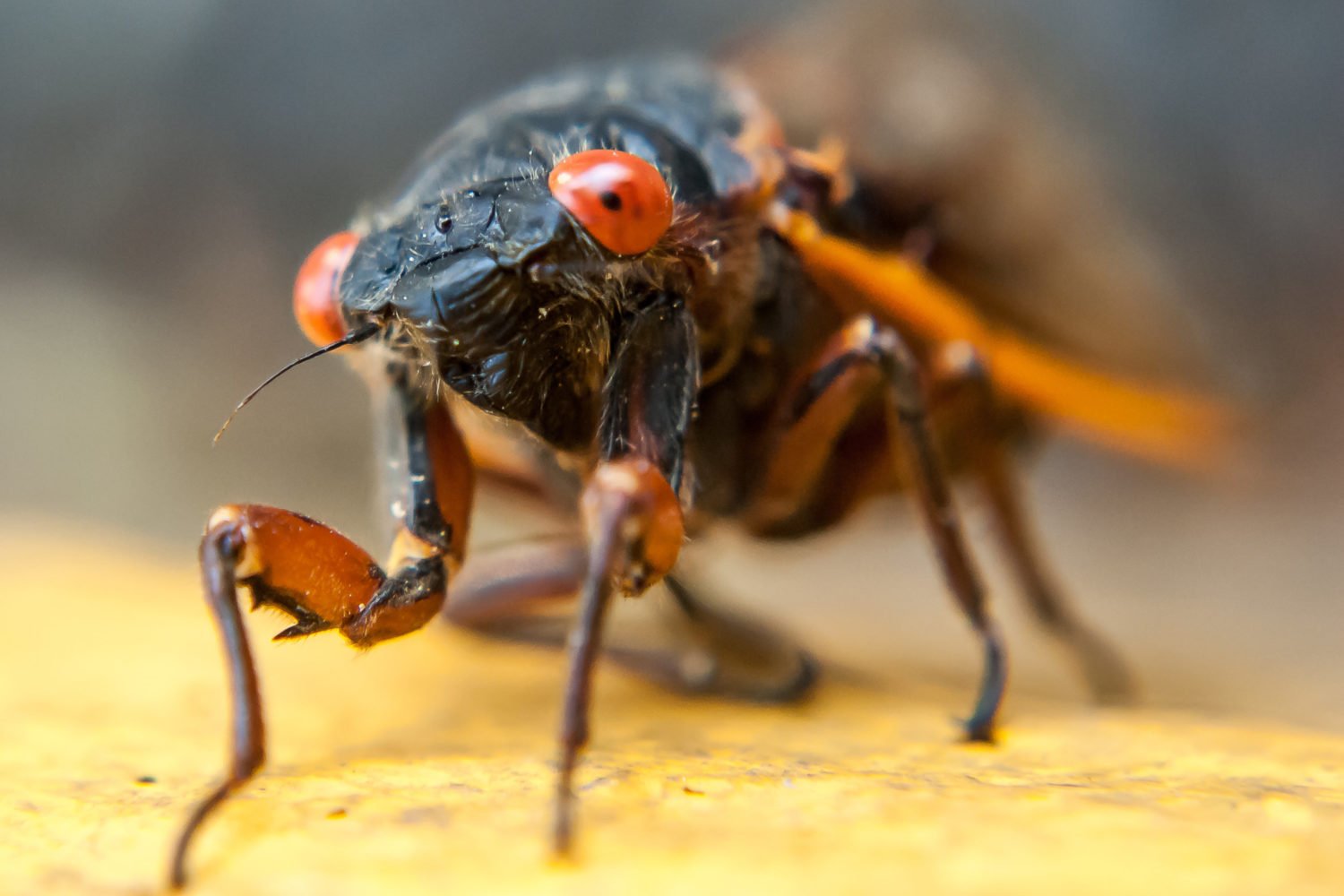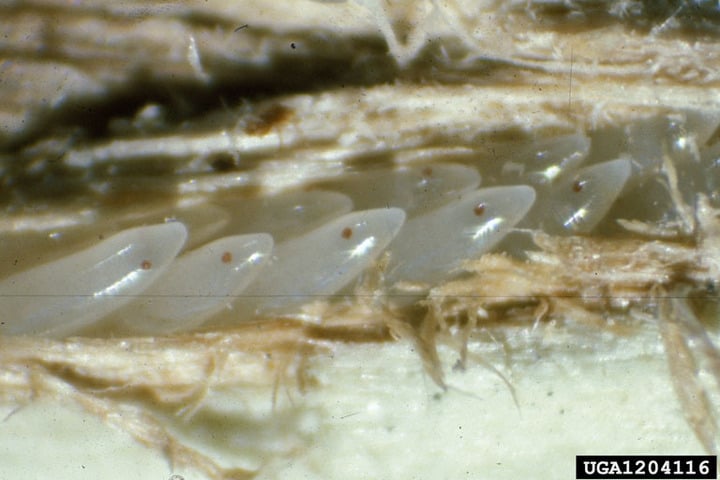People need to chill out about cicadas. That’s the advice I got when I called Dr. Paula Shrewsbury, a professor in the University of Maryland’s entomology department, to ask her about last minute yard preparations. (You should cover your young trees in mesh netting, by the way.) She stressed that cicadas do more good than harm, and gave three reasons why you shouldn’t fret over them:
Cicadas help the environment. At the end of their life cycles, cicadas fall from the trees and decompose. That enriches the soil, plus “they provide nutrients to the trees that they were feeding on, so they’re going to help the trees in that way,” Shrewsbury says.
Cicadas only harm young trees. The creatures won’t damage your vegetable gardens, flowers, or shrubs. They much prefer the small branches of your newly planted trees. However, it is not feeding that hurts the trees. The damage is from female cicadas carving little slits in which they lay their eggs. “It’s too much for [the trees] to take and they can’t recuperate from it,” Shrewsbury says.
If you want to protect your young trees, don’t use insecticides. They won’t work, and the cicadas will come right back after it wears off (thus, you risk harming natural pollinators). Instead, cover the trees with mesh netting that has openings about a centimeter in diameter.
Cicadas will only be here for a few weeks. Brood X is expected to be in the area from mid-May to the first week of June. They’ll be gone before you know it.
But, what if you’re still worried? Shrewsbury says to learn as much about cicadas as you can. She suggested checking out Cicada Crew and Cicada Mania, two websites packed with info about the insects.
For those who are deathly afraid of bugs, Shrewsbury recommends counseling. Her psychologist friends have been working with patients who have anxiety about the emergence. A reminder: “They don’t bite or sting.”
Or, you could just get out of here. Cicadas don’t appear west of the Mississippi River, on the Eastern Shore of Maryland, or south of Georgia.
As a cicada expert, Shrewsbury finds the cicadas emergence to be exciting:”There’s going to be romance and singing in the trees.”
















